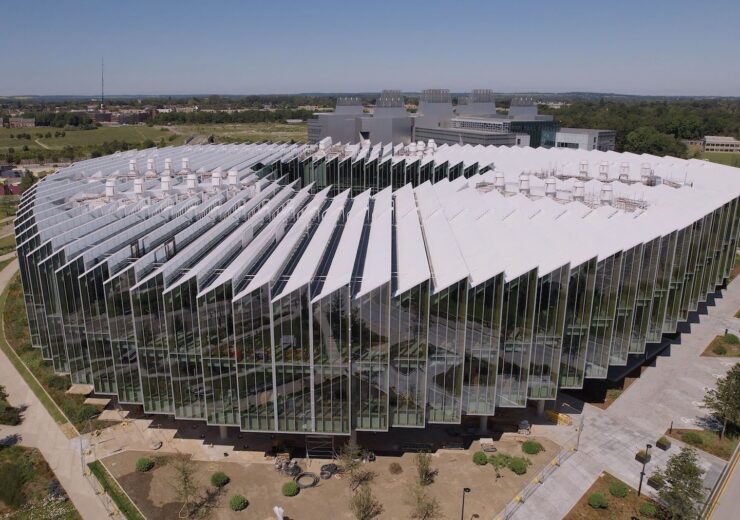The new 19,000m2 R&D facility that represents £1bn investment will feature the most advanced robotics, high-throughput screening and AI-driven technology

AstraZeneca’s The Discovery Centre overhead view. (Credit: AstraZeneca.)
AstraZeneca is set to open its advanced research and development (R&D) facility, The Discovery Centre (DISC), in the Cambridge Biomedical Campus, UK.
The new 19,000m2 R&D facility that represents a £1bn ($1.3bn) investment will be opened on 23 November in presence of Britain’s Prince Charles.
AstraZeneca has said that the new facility has been designed to meet the world’s top environmental standards and support more than 2,200 research scientists.
The discovery centre will feature the most advanced robotics, high-throughput screening and AI-driven technology, said the company.
AstraZeneca CEO Pascal Soriot said: “Our ambition today is to not only unveil a building, but to also drive the next wave of scientific innovation.
“Our new Discovery Centre in Cambridge raises the bar for sustainable R&D and global collaboration across our industry.
“It will allow us to break new boundaries in the understanding of disease biology, bring life-changing medicines to patients and power the next stage of our company’s growth.”
AstraZeneca said that DISC is located in close proximity to hospitals, research institutions and several biotech companies, and will support its focus on precision medicines.
It was designed with 174 boreholes to provide natural geothermal energy, along with four hybrid cooling towers and a ground source heat pump to save energy.
The new facility was designed with low-energy ventilation and high insulation to enhance the energy efficiency of the building.
Also, the saw-tooth roof design would minimise the energy use as natural daylight floods into the interiors, said the company.
DISC is said to expand the company’s R&D presence in more than 40 countries worldwide, including its research centres in Sweden and the US, and facilities in China and Japan.
Also, the centre would further support AstraZeneca’s partnerships, develop the next generation of science leaders and advance industry-leading levels of productivity.
Furthermore, AstraZeneca said that the energy efficiency of the new facility is in line with its Ambition Zero Carbon programme for 2025, and become carbon negative by 2030.
